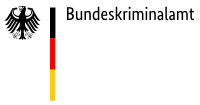The Internet of Things, big data, algorithms and artificial intelligence –technology increasingly determines our lives, shapes our perceptions and possibilities for action in a free and democratic society. In the digital age, "machines" are already controlling our everyday lives. They are a catalyst for economic value creation and social development. This raises the question as to what influence technological development has on our open society and on central values such as freedom, security and selfdetermination. Will these values be strengthened through more participation and interaction or will they rather be weakened through automation and the loss of autonomy?
One thing is for certain: an open and digital society needs security. Digital transformation has permeated all areas of life and changes our routines. This is also true for the work performed by police and security authorities throughout the world. This year's BKA Autumn Conference will focus on precisely this aspect and provide answers to questions such as:
- What are the distinctive characteristics of an open society whose structures and processes are increasingly based on automation and the spread of digital technology?
- What effect does digital transformation have on a liberal democracy, on a state based on the rule of law, but especially on our security organisation and security-related work – in a national and international context?
- What are the potentials of the spread of digital technology for crime suppression? What risks will we have to face to ensure security in an open and digital society?
- What concepts are suitable for efficiently implementing digital transformation in the fields of organisation, information processing, human resources management and co-operation within the national and European police network?
Renowned speakers from politics, the police as well as the academic and business communities will present their individual views and answers to these questions within the three thematic blocks
– concepts, processes, human resources –.
Some 500 high-ranking national and international guests from the police, the judiciary, politics, the business and academic communities and society are expected to attend the conference.
